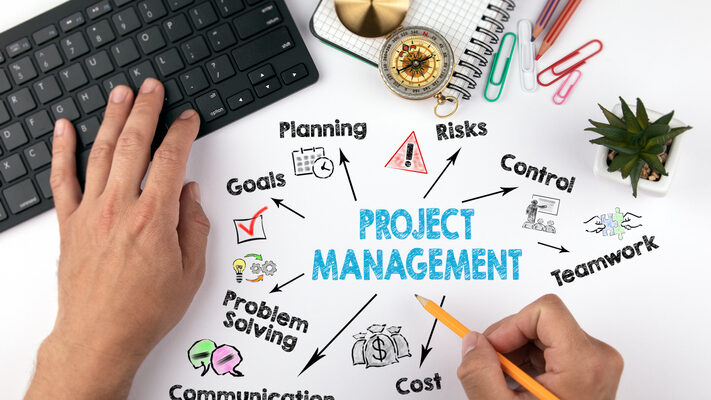If you are considering hiring a Project Manager, either temporarily or full time, you might have run into the thought of, “A dedicated project manager costs too much.” While I can agree that a quality employee or subcontractor can look like a large expense, I must remind clients that the quality of any employee or subcontractor’s work should be directly proportional to the costs. However, because Project Managers a direct cost they are different. Employing a dedicated PM can save you more money and provide you with a higher value than your original budget and forecasts for that project.
Historically, the rule of thumb for most projects is that the total cost of a PM or PM team is 6-8% of the total project cost. Therefore, if you have a project budget of $100,000.00, roughly $6,000 to $8,000 should be budgeted for the management of your project. Depending on your organization’s burdened labor rates, this could lead to a wide range of hours that a PM can dedicate to your project over its specific life cycle.
An additional variable to remember when creating budgets for your PM time is the length of the project. If that same $100,000.00 project is scheduled to be performed over the course of an entire year, you may want to consider having a dedicated number of hours (or days) for your management team each month to perform standard checks, reviews and directions for the project; longer-lasting projects should also mean higher management costs, which leads me to the points where a PM can save you money.
As the old saying goes, time is money; this is no different when considering the project’s cost and schedule.
If your allotted time for a project is three months, but your schedule starts to slip, the benefits of that project’s completion start to diminish or incur additional costs. For example, if you have a project to expand your manufacturing space for a new product, you want to start seeing a return on that investment as soon as possible. If there are delays in this expansion, your return will also be delayed.
As with the previous example of time slipping costing money, so can scope creep. Unfortunately, there can be a disconnect between the vision of a project stakeholder and the people they hire to perform the work, resulting in multiple change orders, or corrective actions/ rework to bring your vision to reality. Project Managers are skilled in project scope gap identification, clarification, and implementation before issues arise, and many times before the project is even put out to bid.
This list of benefits can continue through the remainder of the project’s constraints to provide you and your team with mitigation of risks, increased value or quality of your project result, and many other added benefits. At the end of the day your PM (or your PM team) should bring more value to the project result than what your initial “cost,” reflects; this is especially true when you look at the life cycle of the final product of your project.
Contact us to get a free, no obligation estimate for what we can do for your project.




